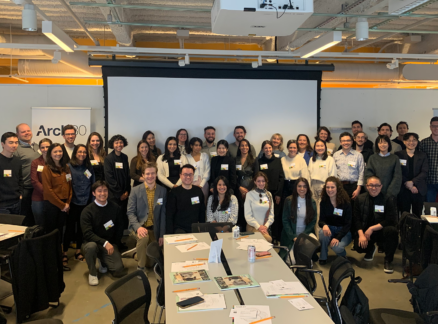February 1, 2011
Sole Purpose
Nicola Stattmann designs a line of comfy, stylish footwear that protects diabetic feet.
Many people with diabetes lose nerve sensation in their feet (a condition called neuropathy) and, as a result, fail to register acute pain or detect the growth of blisters or ulcers. Without treatment, an ulcer can become infected and, in the worst cases, turn gangrenous. Diabetic patients account for about half of the lower-limb amputations performed in the United States.
Vigilant foot care can help avoid such a drastic procedure, as can the proper shoes. But comfortable shoes for diabetic feet, which tend to swell and deform, are invariably clunky, with flat, thick soles. “They are not elegant at all—they don’t suit business clothes and certainly not nice dress,” Nicola Stattmann says. “The result is that people don’t want to buy the right shoes for their feet.” The Frankfurt-based designer offers an alternative: a line of footwear, produced by the German company Bauerfeind, that not only provides ample width and cushioning but is reasonably attractive—a par-ticular consideration for young adults with the disease, whose numbers are growing at a disturbing rate.
Made of supple calfskin, ErgoMove shoes feature a seam-free lining, to avoid the risk of aggravating pressure points, and come as loafers or ankle boots (four different styles for men and women). And although flat soles are best for stab-ility and balance, Stattmann convinced Bauerfeind to add a small heel for the ladies. “We agreed to a little compromise,” she says. Here she walks us through the finer points
of her design.





